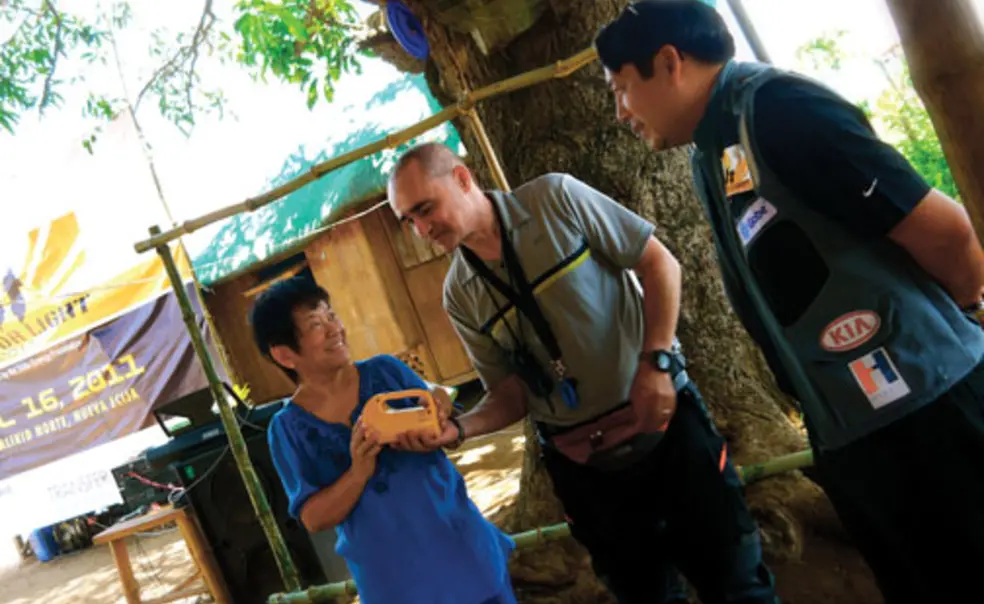Alumni Profile: Jim Ayala '84, a businessman solving social problems
Jim Ayala ’84, right, donates solar lanterns to a village in the Philippines through a foundation he heads.
Résumé: President and founder of Hybrid Social Solutions, which brings essential goods and services to poor, rural villages in the Philippines; former CEO of Ayala Land, the largest real-estate development company in the Philippines; a former director of the consulting company McKinsey & Company. Majored in economics. Lives in Manila.
A CHANGE OF HEART Jim Ayala had made a career in corporate America helping rich people become richer. He worked for McKinsey for 19 years, eventually returning to his native Philippines to open an office in Manila, and later joined Ayala Land. But living and working in the Philippines “surrounded by poverty,” he began asking, “why am I not spending my energy helping people who need it more?” So he left the corporate world last year to focus on issues that face the poor — lack of access to clean water, sanitation, electricity, and health care.
A NEW SOCIAL SOLUTION Part of the problem in remote, poor communities, he says, is that there’s a dearth of distributors, technicians, and financiers willing to service those areas and therefore no sustainable supply chain. “Roughly a third of humanity is ignored by most businesses,” he says. To rectify that, Ayala is organizing companies to service those remote marketplaces, and working with business people whose mission involves serving those at the bottom rung of society.
BRINGING SOLAR ENERGY AND EYEGLASSES TO REMOTE AREAS In 2010, Ayala started Hybrid Social Solutions, whose first product is a solar lantern that lasts 10 years. His company is a for-profit organization; to create solutions that are financially sustainable over time “requires qualities of businesses,” he says. About 20 percent of the Philippines’ population, he says, live off the electricity grid and use candles, batteries, and kerosene for energy. The typical household spends about $6,000 over 10 years on those items; two solar lanterns and replacement batteries cost just $200, says Ayala. The company’s other products include a $30 water-purifier system and $10 adjustable eyeglasses that do not require visiting a doctor. The key to systematically solving the issues facing the poor is to enlist businesses and innovators in such a way that they don’t lose track of social and developmental goals, says Ayala.












No responses yet